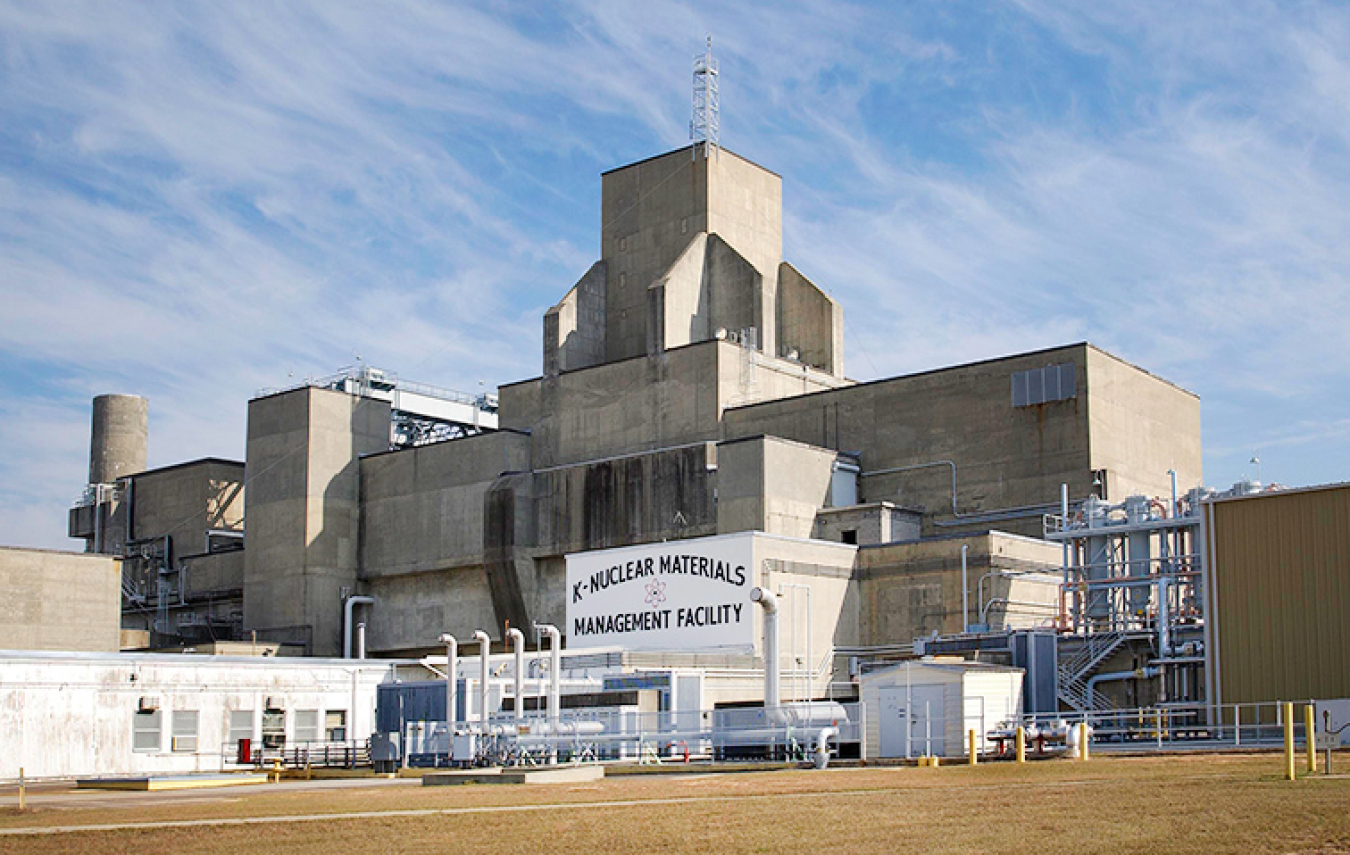AIKEN, S.C. – EM and the Savannah River Site (SRS) management and operations contractor are seeing positive impacts on safety culture as the site works to restore operations following last year’s operational pause.
February 11, 2016
The K Area Complex exited deliberate operations on Jan. 25 this year.
AIKEN, S.C. – EM and the Savannah River Site (SRS) management and operations contractor are seeing positive impacts on safety culture as the site works to restore operations following last year’s operational pause.
Savannah River Nuclear Solutions (SRNS) instituted the company-wide pause for work not essential to safety and security in September after finding procedural non-compliances in operations in HB Line. As work gradually resumed, EM and SRNS examined all operations, making changes in how procedures are developed and followed, training, and other areas.
An overarching benefit of the pause is that the workforce can see that EM and its contractors are willing to “walk the walk” when it comes to safety, SRNS says.
“The real benefit has been the workforce seeing that when you realize there are problems, you take proactive and positive action,” SRNS President Carol Johnson said. “They see we’re willing to do this and we’re willing to sacrifice production too if that’s what it takes. We always say that but when you actually do it, the workforce really sees you’re really serious and that has a profound impact on the culture.”
DOE Savannah River Operations Office Manager Jack Craig agreed.
“Culture centers on shared beliefs and values,” Craig said. “We say we value safety above production but when you do it, it sends a very clear message of commitment. The safety of our workforce is the most important thing.”
In assessing its operations during the pause, SRNS concluded that its process for revising and validating procedures was cumbersome. The company established a team to identify improvements to help personnel performing field work, and provided additional training. Additionally:
- An analysis concluded that industry comparisons show more personnel are needed for training and procedures at some SRS facilities. Efforts are underway to increase staffing levels where needed;
- Management will spotlight positive actions by personnel who model excellence and deliver results;
- Personnel have been coached on expectations regarding completion of rounds and awareness of surroundings to improve facility conditions; and
- Routine meeting schedules have been revised to allow for more management time in the field.
“We are really focusing on asking and answering questions such as, ‘What do we expect first-line managers to be and do? How well do we train them to prioritize and resolve issues?” SRNS Chief Operating Officer Dave Eyler said. “It’s really important that we not only validate that our procedures work, but that we are coaching and mentoring our first-line managers.”
SRNS is building new assessment tools to ensure workers follow procedures, and procedures match work performed. SRNS will continue conducting sessions held during the pause in which eight to 12 workers discuss the procedures with first-line supervisors and other managers. SRNS also will hold periodic half-day pauses to examine operations.
“We are finding that these small groups that discuss how the actual work is conducted are very effective as an assessment tool and often more efficient than going out and watching the work,” Eyler said. “We’ve created a system where we are going to go through a cycle where we assess our procedures and operations in a more deliberate way. We’ve built in these preventive pauses going forward versus having to do company-wide or business unit corrective pauses.”
EM and SRNS are working to share lessons learned from the pause with similar projects across the DOE complex to help other projects maintain safe operations.
“SRNS has emerged from the pause as a significantly stronger company,” Johnson said. "With the changes we are incorporating we are well positioned for success in 2016 at Savannah River.”

